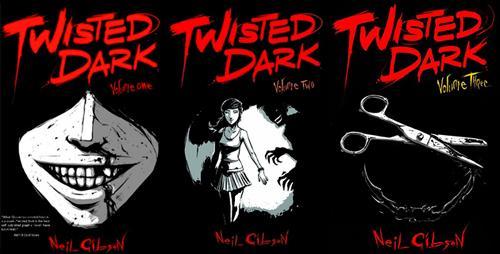Comic books have the power to fight mental illness
James Linton says the genre can do great work in eradicating stigma, overcoming stereotypes and empowering readers

Comic books have, for many decades, fallen victim to negative preconceptions from society with it claimed comic books can be detrimental to the mental and emotional health of its readers. In his 1954 book Seduction of the Innocent, psychiatrist and author Fredric Wertham insisted comic books promoted crime, prejudice and could lead to an impaired reading ability.
Claims such as this did much to demonise comic books, even as far as the US Congress having comic books burnt and regulated by the Comics Code Authority. Even since the boom of the industry in the last few decades and the abandonment of the Comics Code in the 2000s, the comic book medium has not been fully relinquished of negative social perception.
It is often accused by critics of being limited to stereotypical superhero stories; a means of primarily entertaining children with generic heroism, body fetishising and little actual substance.
But this does not reflect the true complexity of the present output in comic books, particularly in the honesty with which a number of writers have addressed the issue of mental health. Comic books are unique in their ability to portray relatable characters through storytelling. They share the ability of novels to explore the internal thoughts and values of characters with written word, while also benefiting from visuals to bring worlds and characters to life. This can steer readers’ into new ways of thinking.
Neil Gibson, founder and editor-in-chief of T-Pub Comics, is one writer who argues that the negative social perception about comic books is not only often outdated but unduly harms the medium and limit recognition of its positive impact.
“The comic book medium is just that – a medium,” he says. “To write off an entire medium based on a former negative perception would be akin to reading a badly written children’s book then assuming all subsequent books are equally bad and childish.
“Or it could be comparable to watching a single cowboy western show and concluding that TV programmes were limited solely to that genre. It is a mind-set that ignores all the great work in the medium and all the potential for great story-telling the medium has.”
He sought to demonstrate this with his comic book series Twisted Dark, a series of interconnected psychological thrillers. They provide an honest insight relating to mental health issues, such as suicidal thoughts, disenfranchisement from society, and grief from loss, all told through relatable characters in realistic settings and relatable circumstances.
It is an approach that has been welcomed by those working in the mental health field. Gibson has been contacted by readers telling how the stories resonated with them and how his examination of mental health helped them explain to others what they were experiencing.
“Many comic books are written to appeal to young readers,” he says, “with deliberately simplified stories and a decipherable moral designed to reach a large demographic. But in Twisted Dark I sought to show how comic books can be a powerful means of examining real world issues, particularly regarding psychology.”
Mari Iavelle-Jill, an officer at the mental health charity Mind in Haringey, said that she used Twisted Dark as an example of how comics had helped take universal issues and make them resound with the individual.
“The minimalist form of the comic perfectly demonstrates the restraint with which we communicate about mental health,” she said. “In the Twisted Dark story ‘Suicide’, the ten year old protagonist for example hangs her head in her hands, the caption simply reading: ‘I just want everything to STOP.’
“An open discussion around suicide and mental health is crucial in preventing suicide. There are things that we can do, conversations we can have with one another when we are feeling lonely, isolated and misunderstood. Although talking about mental health can be hard, there is power in owning the language around mental health.”
Mental health continues to be openly discussed and expressed across the comic community. Many stories are told through beloved characters facing and overcoming a complexity of emotional trauma, from Iron Man tackling alcoholism (David Micheline; Demon in a Bottle), to Thor losing and reclaiming his sense of self-worth (Jason Aaron; Thor: God of Thunder Reborn), to Daredevil’s hardships driving him into severe depression (Frank Miller; Daredevil: Born Again).
Stories such as these prove that imagery can create a powerful spotlight on what can be deemed as taboo. It can create a platform for openness with regard to mental health without being encumbered by external negative perceptions. In no other medium, it seems, is this becoming increasingly recognised than in comic books.
Neil Gibson is a writer, publisher and the editor-in-chief of the British comic book publisher T-Pub comics. His comic series Twisted Dark can be read for free here
Join our commenting forum
Join thought-provoking conversations, follow other Independent readers and see their replies
Comments
Bookmark popover
Removed from bookmarks